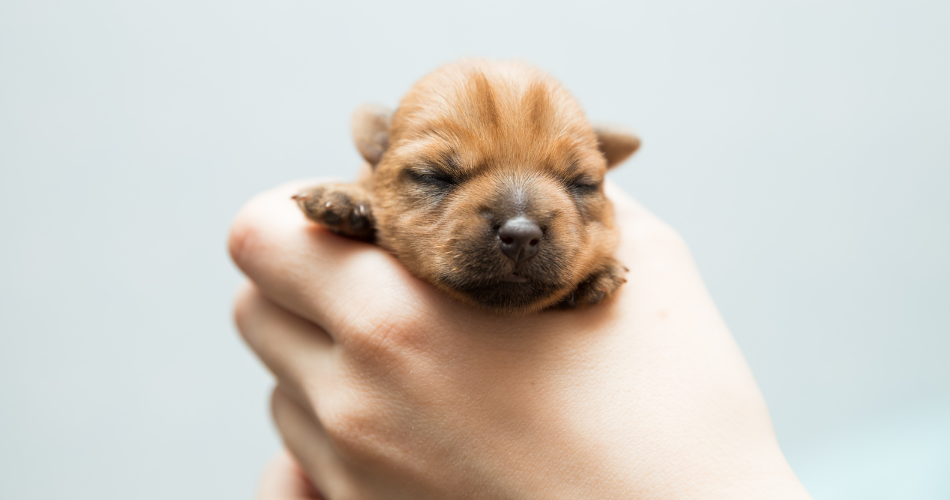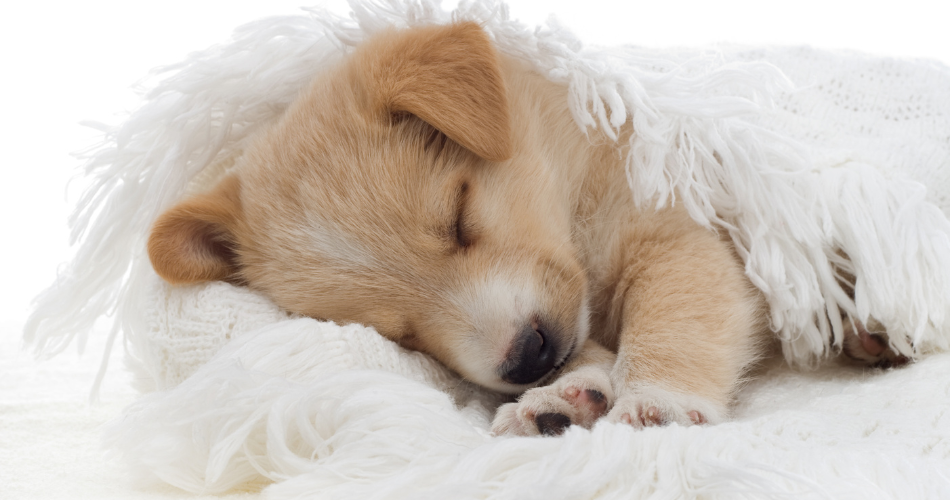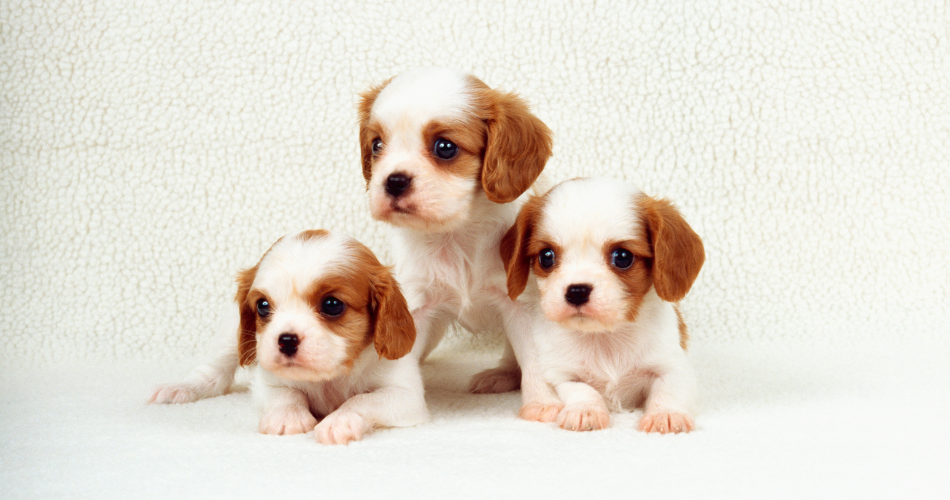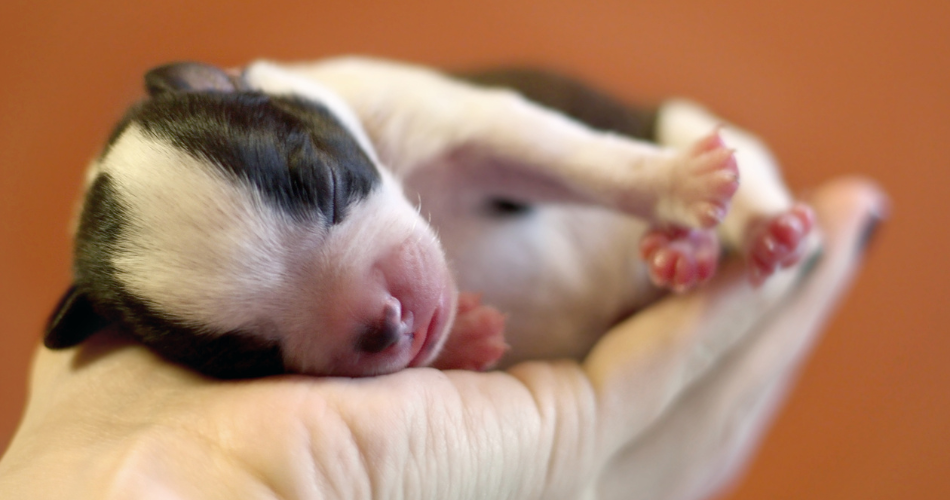Taking care of your lovely newborn puppy is quite tricky. Especially when the mother leaves her puppy alone, you feel intimidated about its security.
A mother is indeed the ultimate carer for her kids. But as your puppy sleeps at your home, as an owner, some responsibility goes to you also. Now the question arises – is there any different process to take care of a newborn puppy or an infant?
Not really! But yes, there exist some similarities as well! For your convenience, we have prepared concise guidance that might help to raise your lovely puppies!
What Do Your Newborn Puppies Need?
As your newborn puppies are also your pet, you should know what you should ensure for them to retain their mental and physical wellness. In short, you should ensure the following things when your puppy is just born.
- Warm Environment: A newborn puppy lands on the earth with thin furs on his body. This thin layer of fur is solely responsible for losing the body heat of your puppy. So, first, you need to take your puppy to a warm environment where he will feel comfortable.
- Proper Hygiene: Newborn puppies are highly vulnerable to viruses and flea-allergic parasites. Keep their food, bedding, etc., hygienic. For cleaning purposes, you can use premium products such as wipes, paw cleaners, etc.
- Proper Nutrition: Even though puppies are small, providing them with proper nutrition is extremely important during their grooming period. Avoid feeding them artificial nutrition supplements first. Instead, let them become habituated to taking breast milk from their mother.
- Socialization: During your puppy’s upbringing, you should focus on their socialization. During this time, puppies easily get habituated how they want. Train your puppy appropriately, but by following the proper process. You can also consult with a vet in this regard.

Here Are the Best 11 Tips on How to Take care of a newborn puppy!
Your newborn puppies don’t need anything special when their mother is taking care. But still, some initiative you need to take from your side that his new mother can’t offer for her puppy!
Here are the 11 handy tips that ensure a good and healthy upbringing for your puppy.
1. Maintain a Whelping Box
The whelping box creates a separate place for your puppy, protecting him from cold, flea allergic parasites, and ensuring privacy. In a word, it acts as the protective nest for your puppy.
Your newborn puppy needs to spend the first 20 days of his life in the whelping box. Even though it creates a distance between the puppy and his mother, it also protects him from being crushed by his mother.
In the market, you’ll find different kinds of whelping boxes. You can buy a paper whelping box if you consider going with the cheapest option. But if the number of puppies is bigger, buying a plastic or wooden one would be the best move.
2. Let Them Be with Their Mother
New puppies rely exclusively on their mother for the first few weeks of their lives to get the necessary nutrition. In the meantime, puppies also learn social interaction from their mother.
So, letting them be with their mother is the easiest and most effective move to ensure a healthy upbringing for your newborn puppies. If you have a separate whelping box for your puppies, ensure their mother can be with her puppies for at least several hours.
But if you need a whelping box, try to make it with enough space where the mother and her puppies can stay together.
3. Keep Your Puppies Warm
For the first 3-4 weeks, small puppies can’t regulate their body temperature as a mature puppy can. During this period, they need extra care to stay warm and comfortable to avoid disease.
Place a heating lamp near your puppies to ensure proper heat. If there is a chance for them to destroy it, you can place the lamp above them. Sometimes you might experience that your puppies start to stay away from the lamp. In that case, measure their body temperatures. If it’s between 96° – 98°F, it’s completely okay for them.
But if your puppy’s own body temperature is abnormal, create more distance between your puppies and the heating lamp.

4. Check Out the Warning Signs of Sickness
Newborn puppies are always vulnerable to flea allergic parasites, catching colds, and other health issues. To retain your puppy’s wellness, it’s essential to identify the warning signs of your puppy’s sickness before it’s too late!
Low birth weight is one of the major warning signs. In that case, most puppies struggle to suck sufficient milk from their mother. That eventually can create nutritional deficiency and leads your puppy to lose weight. You can feed milk with a feeder, but that can’t replace the breast milk with its nutritional value to help him gain weight.
Your puppy can show other signs of sickness, such as decreased activity, losing weight, poor appetite, etc.
5. Consult with a Veterinarian
Just right after your puppies are born, consulting with a vet is the first step you should take. Newborn puppies don’t always show the warning signs of sickness. Your vet might ask for some medical tests for your puppies to get the complete report to analyze.
Your vet will suggest some do’s and don’ts depending on your health condition. And on the do’s list, most veterinarians include regular deworming. When your puppies are 2 weeks old, initiate the deworming process for your puppies regularly at 2-week intervals.
During the overall medication process, your vet can suggest some veterinary medicine also.
6. Keep Your Young Puppies Clean
As your newborn puppies are vulnerable to dust and flea-allergic parasites, keeping them in a clean area is extremely important.
Making or bringing a whelping box for them can be the primary step to ensure their cleanliness and hygiene. You should also properly clean your puppy while bathing them. But unlike mature puppies, you should follow the gentle process to wash them off.
You should use a soft, wet, and warm cloth for your newborn pups to clean them. Wipe their bodies with the cloth in a circular motion. You should be extra careful while wiping their genitals and anal area.

7. Be Conscious About Fading Puppy Syndrome
Fading puppy syndrome is one of the mysterious diseases behind making your puppy dead.
Technically, fading puppy syndrome refers to the condition of your newborn puppies when they face sudden death for no reason. In most cases, we can see that the puppies with fading puppy syndrome land on the earth healthy but faded. They show normal activities during their lifetime but suddenly and unexpectedly die within one or three weeks.
If your puppy suffers from this syndrome, he should show some symptoms such as diarrhea / soft stool, continuous crying, soft breathing, etc. In that case, consulting with your vet is the only sophisticated solution.
8. Supplemental Feeding
Newborn puppies are completely dependent on their mother to get proper nutrients. But sometimes, for different reasons, mother’s milk is inadequate to provide this. Even sometimes, mother dogs’ milk production process gets interrupted by some health issues. In such cases, the mother dog can’t produce milk at a decent rate.
In such cases, your puppies regularly need supplemental feeding one to six times daily. To retain the natural growth of your puppies, you need to choose quality dog milk replacers.
Before feeding your puppies these supplements, make sure these are warmed at 35° – 37.8°C.
9. Monitor the Newborns’ Weight
If your puppies get proper nutrients routinely, they should gain 5% – 10% of their body weight daily. That indicates – until your puppies get mature enough, you should check their gaining weight regularly.
Especially for the first couple of weeks, you should weigh him regularly to monitor his growth rate. And for the first year, you can weigh them once every 3 days. Take note when measuring his body weight gain and regularly calculating his average growth.
The growth may not show the same results as it depends on the bread you provide and your puppy’s daily physical activity. But you can follow the rule of thumb to get a rough idea.

10. Proper Vaccinations
Not all dogs need vaccinations, as they have different immunity levels. The decision might vary considering the country environment you’re residing in and the individual risk factors. Depending on these, some dogs don’t need all types of vaccines.
Consult with a veterinarian to know your puppy’s health risk factors. Depending on that, he’ll suggest the appropriate vaccines. The first year of your puppy’s life is the vaccination year. Discuss with your vet and get the vaccination schedule and the name of the vaccines.
11. Bring on the Solid Puppy Food
Your newborn puppy should rely entirely on his mother’s milk for the first couple of weeks. From the 3.5 to the fourth week, he should start eating solid foods like gruel. But from the third week, start offering solid foods to your puppy.
If your puppy can’t take regular gruel, you can make a puppy gruel at home. Make sure all the ingredients you mix are fresh and high quality. You can also add some minced meat to enhance the taste and consistency. If you can’t prepare, you can purchase canned puppy food instead.
Whatever meal you offer to your pups, please ensure the temperature is warm below 40°C before serving it.
When Can Your Puppy Leave His Mother?
The concise reply is – when your puppy eats all types of solid foods! In numbers, it should be 8 – 12 weeks. In general, for the first few weeks of your puppy’s life, he’s entirely dependent on his mother to get necessary nutrients and daily calorie needs. Habituating with eating solid foods is the first phase of reducing this dependency.
On the other hand, puppies require some form of dog behavior from their mother, which we can’t teach them as humans. To retain their natural learning and socialization process, the mother dog should stay with her puppies for a certain time, even after leaving the dog’s milk.

Frequently Asked Questions (FAQ)
Now, we want to answer some frequently asked questions considering your query. You can use these tips to ensure a better and healthy upbringing for your puppies. Have a look-
Q- When Should Puppies Have Their First Vet Checkup?
- The general recommendation is to have your first vet checkup at 2-3 weeks of your puppy’s age. During the checkup, he’ll inspect the initial health risk factors and all other things. Depending on the condition, he’ll suggest the suggestion.
Q- How Can I Help a Puppy to Go to the Bathroom?
- It’s tricky to answer. Training your puppy to go to the bathroom on his own is part of the socialization process. But the most effective method is – to limit the area where your puppy can poop! Train your puppy gently and let them be habituated subconsciously that makes them feel that – the bathroom is the only place he should poop.
Q- How Much Should a Newborn Puppy Weigh?
- A newborn puppy weighs between 2.5 ounces to 2.25 pounds. But depending on the breed and health factors, this number might vary.
Wrapping Up
We believe, if you follow this guidance, your puppy will enjoy a healthy upbringing. The tips we have mentioned in the discussion are taken from our real-life experience.
But still, before taking any crucial decisions like feeding gruel to your puppies, vaccinating, etc., do consult with a veterinarian immediately. Depending on the present health condition, he’ll give you the appropriate guidance.
And of course, share the crucial information about your puppies at your vet appointments.

